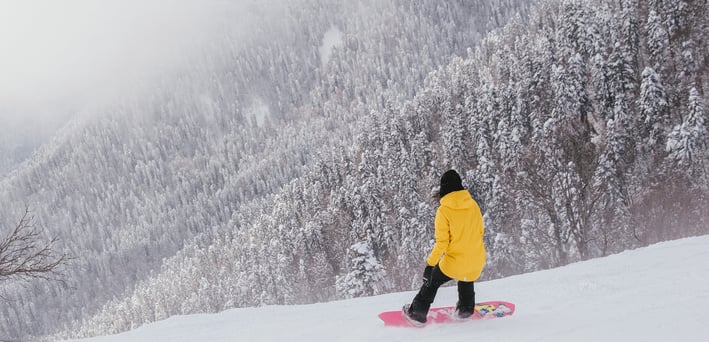Ski and Snowboard Injury Prevention
With the official start of winter comes ski season! Do you have a trip coming up? If you don’t normally work out, it’s a good idea to get in shape beforehand. Just as you should train for a marathon, you should also train for your ski or snowboarding trip. You would ideally start a few weeks in advance, exercising 3-4 times a week. Otherwise, you might get too sore during or after the trip. Worse yet, you’ll be more prone to injury.
The most common injuries for both recreational skiers and snowboarders are shoulder dislocation, collar bone fracture, and concussion. Skiing puts you more at risk for knee (ACL, MCL, meniscus) injuries and thumb sprain. Snowboarders are more likely to get a wrist fracture or ankle sprain/fracture.Wearing protective gear with snow sports and learning proper ski/snowboard techniques will help prevent some of these injuries. At the very least, wear a helmet even if you don’t think you’ll fall. You never know if a snowboarder coming off of a jump might accidentally crash onto your head (true story; this happened to a friend while on a ski trip). Knee pads, hip pads, and wrist guards can be helpful if you’re prone to falling, especially for snowboarding.
Training for your ski trip should involve strengthening your entire body with an exercise schedule that alternates different muscle groups, allowing each muscle group at least 1 day of rest. For example, if you do a leg workout on Monday, you should focus on an abdominal or arm workout on Tuesday before going back to a lower body workout on Wednesday. Each workout should start with a warm-up period of dynamic stretching (bicycling, jogging, jumping jacks, arm circles, holding a position for only 2 seconds or less) and end with a cool-down period of sustained stretching (5-30 second stretches of hips, hamstrings, shoulders, etc.) to prevent injuries and reduce muscle soreness. For instruction on how to stretch specific muscles, physical therapists and personal trainers are great resources.
To prevent injuries, train to get in shape before a ski or snowboard trip and wear protective gear while skiing or snowboarding. Be safe, and have fun!


